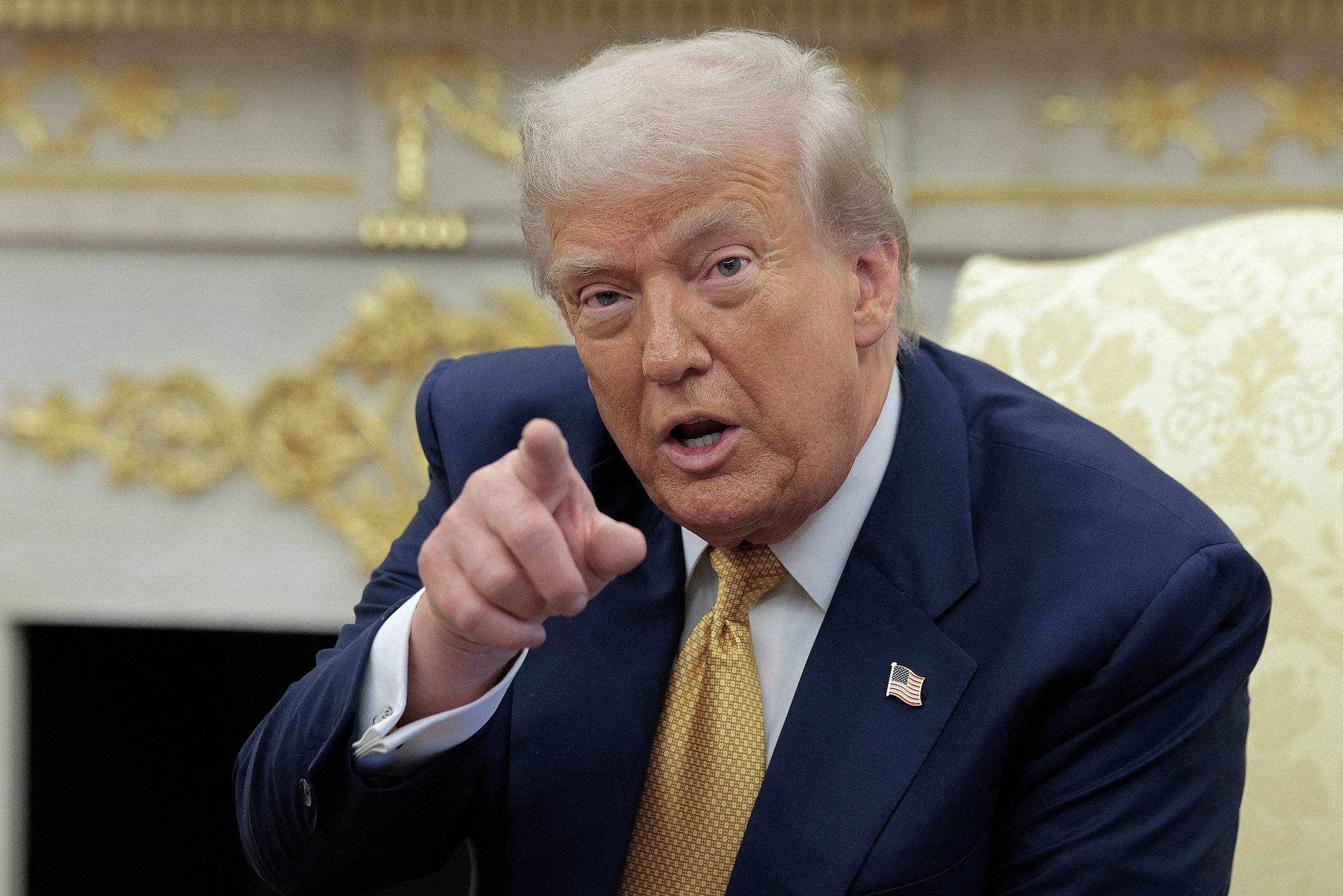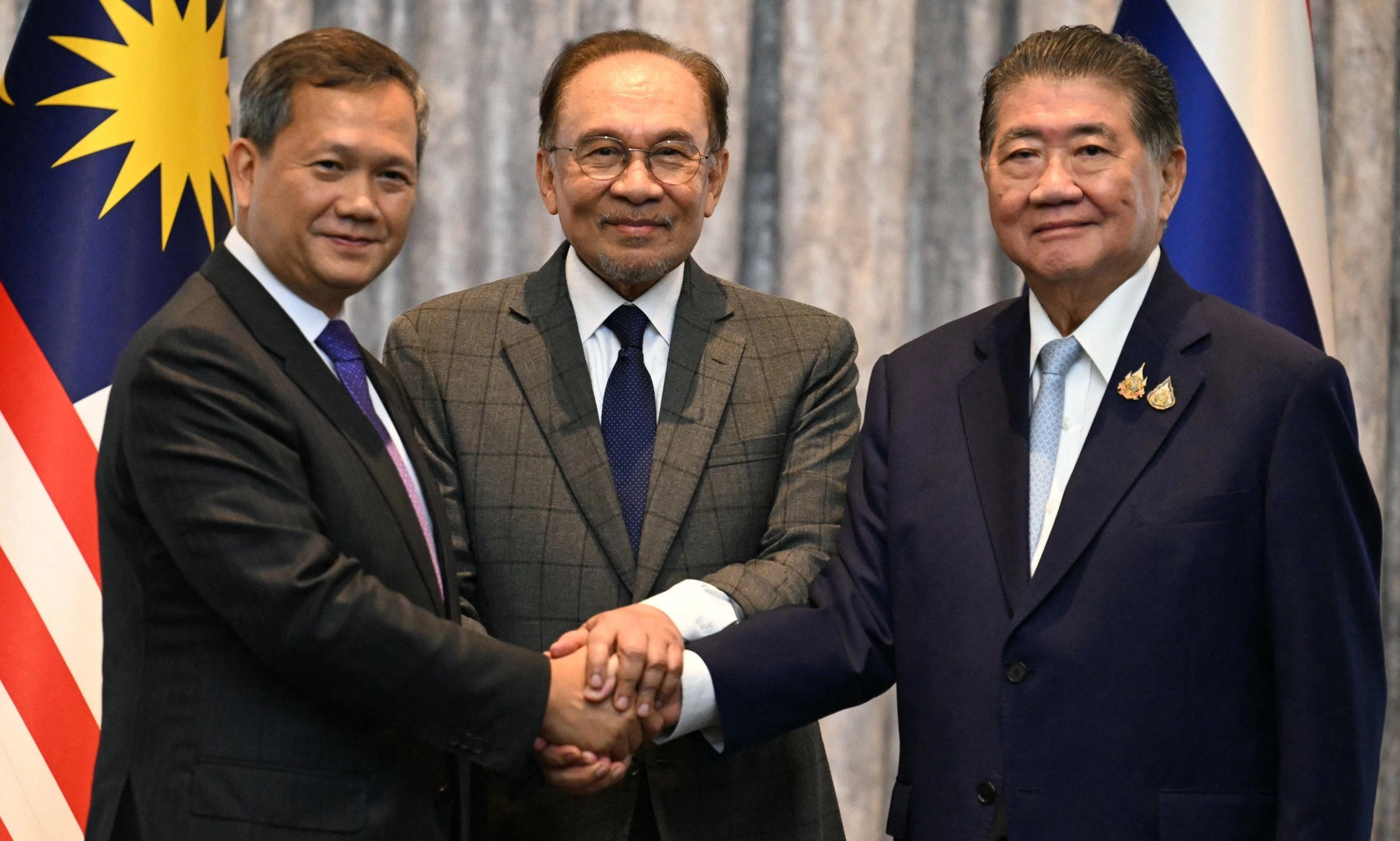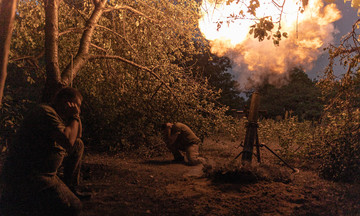Following the border clash between Cambodia and Thailand on 24/7, Malaysian Prime Minister Anwar Ibrahim, as ASEAN Chair, called the leaders of both countries. He urged an immediate ceasefire to prevent further hostilities and create space for peaceful dialogue and a diplomatic resolution.
However, the fighting intensified. China then also sent a message to Thailand promoting a peaceful solution, but Bangkok did not respond positively to the mediation proposals, an anonymous Thai official told Reuters on 31/7.
Thai officials at the time stated they only wanted bilateral talks with Cambodia, without any third-party mediation. "We don't think we need any mediating role," Thai Foreign Ministry spokesperson Nikorndej Balankura declared on 25/7.
It wasn't until 26/7, when then-US President Donald Trump called acting Thai Prime Minister Phumtham Wechayachai, that Bangkok changed its mind.
 |
President Donald Trump at the White House, 22/7. Photo: AFP |
President Donald Trump at the White House, 22/7. Photo: AFP
"We told Trump that we wanted bilateral talks before declaring a ceasefire," a Thai government source said.
A day later, Trump announced on social media that Cambodia and Thailand had agreed to meet to discuss a ceasefire, adding that Washington would not pursue tariff negotiations if the two sides did not end the conflict.
The Thai and Cambodian foreign ministries then began communicating. Bangkok proposed that the two countries' leaders meet at a neutral location and chose Malaysia because "they wanted to treat this as a regional issue."
"The US really pushed for the meeting. We wanted a peaceful resolution to the conflict, so we had to show goodwill and accept the proposal," another Thai source said.
Lim Menghour, a Cambodian government foreign policy official, said Phnom Penh had accepted the mediation offer from Kuala Lumpur from the start, but Bangkok did not proceed until Trump intervened.
Menghour also confirmed that during this process, the Cambodian government maintained communication with China, which also wanted to participate in the negotiations. "We were in regular contact," he said.
A Thai government spokesperson did not respond to Reuters' request for comment.
After reaching a ceasefire agreement, Thailand and Cambodia praised Trump's role. The US president had previously threatened to impose a 36% tariff on goods exported by the two countries to the US, their largest market.
 |
Cambodian Prime Minister Hun Manet (left), Malaysian Prime Minister Anwar Ibrahim (center), and acting Thai Prime Minister Phumtham Wechayachai (right) at a press conference on the afternoon of 28/7. Photo: AFP |
Cambodian Prime Minister Hun Manet (left), Malaysian Prime Minister Anwar Ibrahim (center), and acting Thai Prime Minister Phumtham Wechayachai (right) at a press conference on the afternoon of 28/7. Photo: AFP
Thai sources did not say whether the tariff negotiations were affected after the border conflict. Menghour said Trump expressed a positive attitude about tariffs after the negotiation results, but did not elaborate.
The US president announced the resumption of tariff negotiations with the two countries after the ceasefire agreement. According to an executive order signed by Trump on 31/7, Cambodia faced a retaliatory tariff of 19%, instead of the previous 49%. The tariff on Thailand was also reduced from 36% to 19%.
Duc Trung (According to Reuters, Washington Post, Khmer Times)












